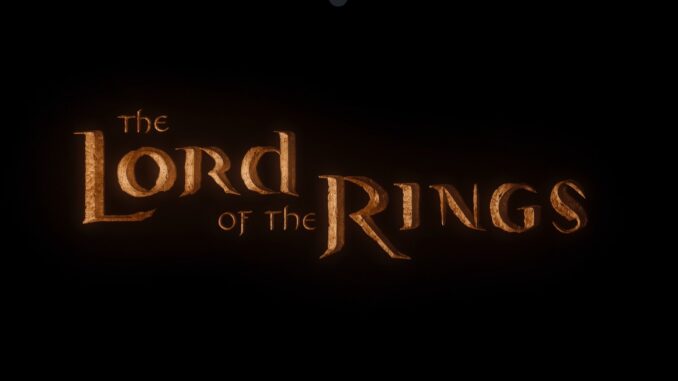
It was supposed to be the dawn of a new age for movie adaptations that was spearheaded by the gargantuan success of Peter Jackson’s The Lord of the Rings trilogy based on J.R.R. Tolkien’s work. Jackson’s trilogy proved the Tolkien gravy train had arrived not just for adaptations, but adaptations that tried to stay faithful to the popular source material to produce films that were cinematic masterpieces, yet alright adaptations. But that didn’t happen. Instead, over the past two decades, The Lord of the Rings brand has been poisoned and corrupted so that it is no longer a potentially rich vein of mithril but an extension of Sauron’s soliloquy.
But not Tolkien’s Sauron who is one of the ultimate villains of all time. No, this is The Rings of Power’s Disney Sauron – speaking thoughts out loud, saying that the undermining and disrespect of Tolkien is for the betterment of Middle-earth in order to reach the “modern audience”. Thoughts which have resulted in poor adaptations, lackluster video games, and overuse of The Lord of the Rings brand for an audience and its ever-dwindling enthusiasm for the property.
Recently, the Embracer Group, which holds the worldwide rights for The Lord of the Rings license when it comes to both The Hobbit and The Lord of the Rings trilogy, released its Q2 financial report for July-September 2024 and revealed that the company has seen a 21% decrease in net sales earning SEK 8.6 billion, which is around $782 million, year-over-year. While the decrease occurred across the board, the PC/Games division was the hardest hit by a 46% net sales decline and attributed to release delays and production cost increases.
It’s a quick turnaround in outcomes for just a year’s time when, in 2023, Embracer was happy with the immediate results after acquiring The Lord of the Rings license back in 2022 for $395 million dollars. A year after the acquisition, Embracer saw significant growth because of Middle-earth Enterprises as games such as The Lord of the Rings: Tales of the Shire and The Lord of the Rings: Return to Moria were being developed along with the release of Magic the Gathering trading card expansion The Lord of the Rings: Tales of Middle-earth.
But, since then, the honeymoon period appears to have ended as the company stated that,
“Organic growth amounted to -14%, primarily due to few new releases and a mixed reception for releases within PC/Console Games.”
During this period, the only Lord of the Rings video game that has been released was The Lord of the Rings: Return to Moria for the Epic Game Store back in August 23, 2023 for a limited time, then on Steam August 27, 2024, and was also released for PlayStation 5 and XBOX X/S consoles.
However, Return to Moria hasn’t experienced any real hype for a game bearing The Lord of the Rings brand, even amongst Tolkien fans. Retailing for $24.99 there haven’t been any official sales numbers released and Steam is the only platform that provides any figures at all. During Return to Moria’s first week on Steam, it managed to peak at 8,811 concurrent players and game ownership figures range between 98,000 to 164,000.
Not great numbers for a game with such branding.
Tales of the Shire, on the other hand, is a game that was delayed to Early 2025. But what is more interesting is that the game recently changed hands as publisher Take-Two Interactive sold the Tales of the Shire developer Private Division to an unknown buyer for an undisclosed amount. The fact that a Lord of the Rings video game was sold off before it was even released is a big indicator of the brand’s declining value within the video game industry. After all, if there was a huge demand for the game, Take-Two would most likely have held onto it unless the undisclosed buyer offered an insane amount for the developer and their catalog.
As for The Lord of the Rings: Gollum, the less we say about that massive flop the better except to point out that its poor reception and sales resulted in Daedalic Entertainment shutting down its development division and canceling its second Lord of the Rings game.
But of the current IPs mentioned, Magic the Gathering’s Lord of the Rings: Tales of Middle-earth set became the second best-selling set for the company despite its racist controversy revolving around the blackwashing of Tolkien’s characters. Wizards of the Coast’s subversion of Tolkien’s characters that involved Aragorn, Galadriel, Meriadoc, Faramir, and Éowyn being portrayed as black is a prime example of Sauron’s soliloquy coming out in full force to the public.
But this wasn’t the first and it isn’t the last when it comes to the subversion of Tolkien’s Middle-earth and why The Lord of the Rings brand is failing.
Peter Jackson’s The Hobbit trilogy could be seen as the first stepping stone towards the decline of The Lord of the Rings brand. An ironic twist since it was the director himself that brought about the golden era of Middle-earth outside of the books. While The Hobbit movies saw a collectively-grossed $2.9 billion at the global box office, the box office numbers declined with each successive movie.
After The Hobbit: The Battle of the Five Armies released in 2014, the brand seemed to go into remission for a couple of years. Until Amazon made a splash by purchasing the global television rights for The Lord of the Rings for $250 million in order to develop and release a five-season show called The Lord of the Rings: The Rings of Power.
However, rather than becoming a triumphant return to Tolkien’s Middle-earth, The Rings of Power quickly distanced itself from J.R.R. Tolkien’s work. Creating a $1 billion fanfiction that simply used the names, characters, and setting of the Second Age in a show that has become one of the most expensive flops due to its poor writing, horrible depiction of beloved characters such as Galadriel, inability to get anything right about the rings of power, and injection of modern themes and ideas into the show while outright disrespecting the father of modern fantasy.
In fact, Amazon’s show is so bad that it couldn’t be helped that Tolkien fans would compare The Rings of Power to The Hobbit movies. Nor that Amazon is struggling to keep putting out a positive spin as The Rings of Power season 2 appears to have underperformed compared to Season 1 and Season 3 has yet to be confirmed. It certainly didn’t help that any valid criticism of the show was instantly met with demonization and ad hominems towards Tolkien fans by the show’s employees and Faulkiens.
The issues, controversies, and darkness surrounding Amazon’s The Rings of Power are vast and, at this time, makes it the penultimate example of a Lord of the Rings property designed to subvert and corrupt Tolkien’s work.
Like Sauron, Amazon has played a mind game when it comes to the “success” of its show. From obfuscating with reluctantly-given global numbers to being silent about viewership figures for Season 2’s finale, it is difficult to accurately gauge how the show is doing. And like Gollum plummeting to his death into the fires of Mount Doom, so has Amazon’s The Rings of Power cratered The Lord of the Rings brand resulting in a Tolkien fan base wary of any new movie, show, or video game being released.
A fact that plays into the overall lethargic reception of Tolkien fans and the general audience when concerning the upcoming release of The Lord of the Rings: The War of the Rohirrim. An anime film set to release December 13th that isn’t gaining a lot of traction for a number of reasons. First, it’s an anime film which is a genre that doesn’t really make waves at the box office in the United States. Second, the movie’s promotions are heavily reliant on a plethora of member berries that includes the use of Peter Jackson’s name (he had nothing to do with the film), clips from The Lord of the Rings movies, and Miranda Otto returning as the voice of Éowyn as a narrator.
Finally, there are a number of red flags for The War of the Rohirrim which includes subversion regarding the characters Helm Hammerhand and Fréaláf who are not going to be the main characters, but Héra. Héra who, in Tolkien’s books, is an unnamed daughter mentioned only once in a two-page account of Helm Hammerhand. Not to mention a change in the script as the original writers were swapped for new ones in which one of the new writers is the daughter of Philippa Boyens, who helped write the screenplays for The Lord of the Rings movies and now The War of the Rohirrim.

However, Embracer Group seems to be relying on the success of The War of the Rohirrim when looking at its Q2 report. The company believes that its Year-over-Year earnings will be substantiated by The War of the Rohirrim’s theatrical release stating that,
“Middle-earth Enterprises is looking forward to the theatrical release of the original anime The Lord of the Rings: The War of the Rohirrim, in Q3, on December 13. There is increasing anticipation for the release, with encouraging fan reactions.”
What will constitute success for the film is anyone’s guess as there is no information for how much it cost to create The War of the Rohirrim. But we can look at other anime films such as the top grossing film Pokémon: The First Movie – Mewtwo Strikes Back which made $85.7 million at the box office back in 1999. Or look at second place which is a more current anime titled Demon Slayer: Kimetsu no Yaiba – The Movie: Mugen Train which was released back in 2021 and made $49.5 million – 50% lower than the number one spot.
The bar is low for The War of the Rohirrim to hit the Top 10 Grossing Anime Films in the United States with it having to make more than Pokémon 3 the Movie: Spell of the Unown which grossed $17 million. Which doesn’t sound like a resounding success for a film with The Lord of the Rings brand attached to it.
Despite what Embrace is expecting from The War of the Rohirrim, success may be harder to achieve than the company thinks.
As for The Lord of the Rings: The Hunt for Gollum there is simply not enough to say anything about. Just to ask a simple question:
Why?
What makes Warner Bros think that people want to see this movie that won’t be directed by Peter Jackson? Sure, actor and filmmaker Andy Serkis, who voiced and played Gollum, is directing the film and Peter Jackson is producing it. But even those names don’t seem to be enough to drum up a significant amount of enthusiasm for this movie. In fact, the reactions for the movie announcement have been mostly lackluster and of disinterest.
When looking at all of these instances of The Lord of the Rings brand failing, or not performing as expected of a hot commodity, it is hard not to wonder why this is happening. Nor is it hard to explain what has changed since The Lord of the Rings: The Return of the King released back in 2003. The entertainment industry itself has changed during this time.
Not for the better, but for the worse.
Sauron’s soliloquy is a metaphor for Hollywood, the video game industry, and other forms of entertainment’s shift into a woke mindframe that cannot comprehend what makes the works of Tolkien so popular. That these industries have been talking about their agenda and crusade openly for a long time and incorporating them into anything and everything. An agenda that has resulted in these industries crumbling as failure after failure is produced and rejected by consumers.
An agenda that was not afraid to weaponize its beliefs in the demonization of not just the fan bases of beloved IPs, but the world in general. An agenda that couldn’t help itself from desecrating Tolkien’s Middle-earth with an abomination like Amazon’s The Rings of Power.
As a result, The Lord of the Rings brand is a poisoned one as both Tolkien fans and the general audience are not really interested in what Hollywood and entertainment industries have to offer Thankfully, this agenda has been pushed by inferior talents with subpar skills which is why we are seeing so many poor creations of beloved books, games, movies, and shows.
But there is some good news.
Anyone willing to stay faithful to the source material can still find that vein of mithril as others dig in mounds of worthless ideological dirt. It’s just going to be harder to convince people this time to watch it, play it, or buy it.
To quote Aragorn from The Lord of the Rings: The Fellowship of the Ring,
“All that is gold does not glitter,
Not all those who wander are lost;
The old that is strong does not wither,
Deep roots are not reached by the frost.
From the ashes a fire shall be woken,
A light from the shadows shall spring;
Renewed shall be blade that was broken,
The crownless again shall be king.”
Author’s Note:
Check out our poll on Twitter asking if you plan to see The War of the Rohirrim in theaters when it releases next month.
Support this site by donating via Paypal or even checking out our merchandise on RedBubble where you can find designs that cater to writers and readers. Money donated and raised goes into paying for this website and equipment.
Interested in posting this article, or another article, on your website? Check out our prices to make that happen – https://tinyurl.com/mrxa56pp
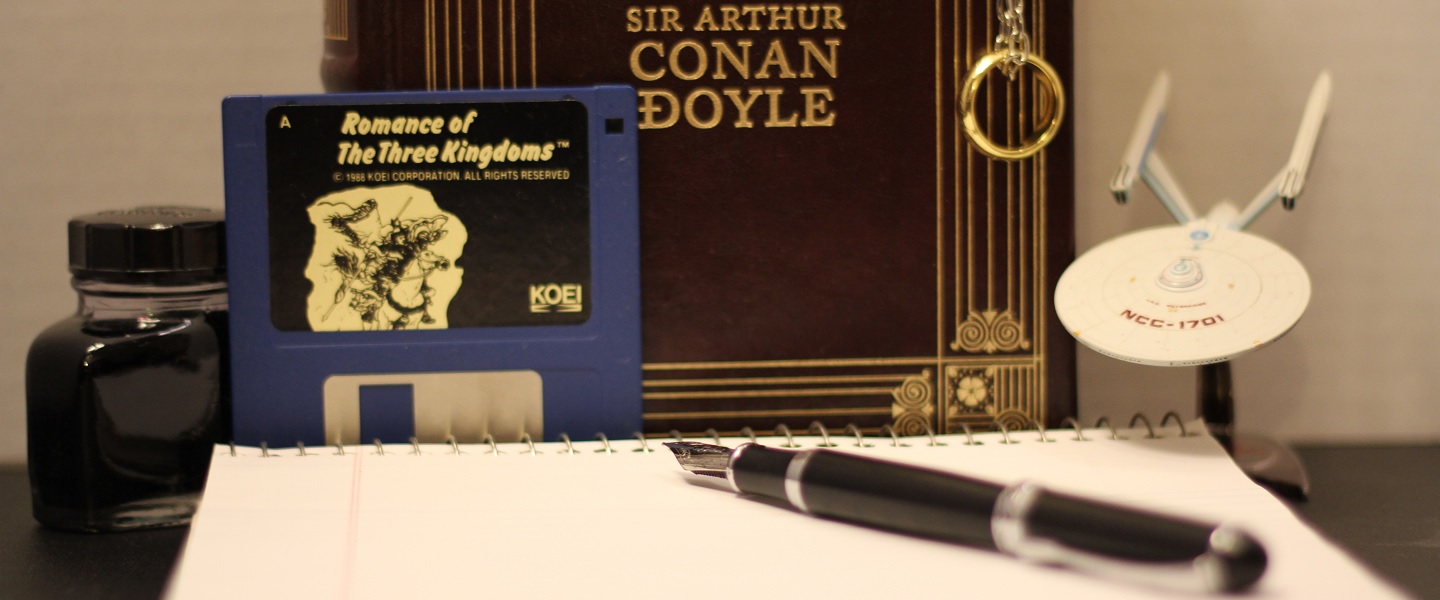

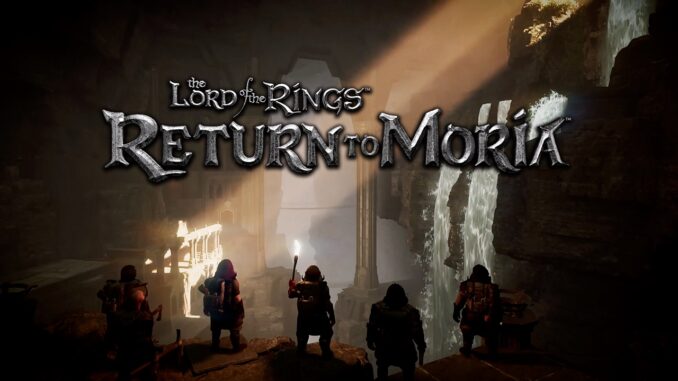
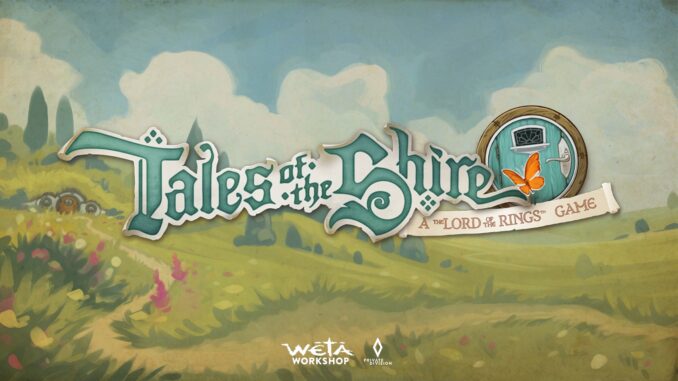
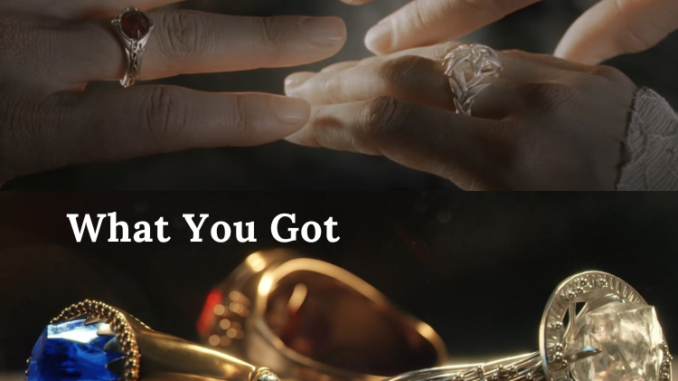
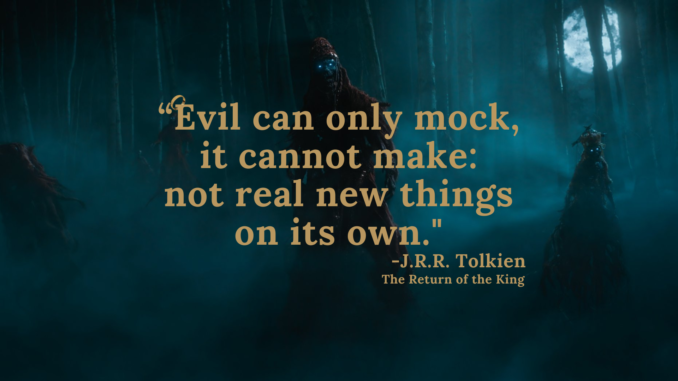

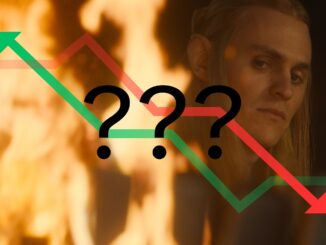

[…] there is nothing compelling about The War of the Rohirrim to attract most viewers. Even with the The Lord of the Rings brand, which the anime film is heavily relying on, is not the lucrative draw it once […]
[…] More importantly, will The Lord of the Rings: The War of the Rohhirm be the next major step in ruining The Lord of the Rings brand? […]
[…] our editorial about The Lord of the Rings brand being poisoned, we brought up a number of factors which have hurt the brand over the past 10 years. Ironically, it […]
[…] Tolkien’s Corner: The Lord of the Rings Brand is Poisoned and Corrupted […]
[…] Tolkien’s Corner: The Lord of the Rings Brand is Poisoned and Corrupted […]
[…] a heavy reliance of LOTR member berries, the animation itself, The Lord of the Rings being a damaged brand, and a failure to attract both Tolkien fans and the general audience. Not to mention stiff […]
[…] at that time to compete with it, not to mention that Moana 2 and Wicked are still in theaters, and The Lord of the Rings brand doesn’t carry as much weight as it used […]
[…] being an anime film, perception that it would be a girl boss movie, and that The Lord of the Rings brand has lost a lot of its drawing power for both Tolkien fans and the general […]
[…] show heavily relied on The Lord of the Rings brand to sell its series even though the Second Age, which The Rings of Power is set in, takes place […]
[…] since The War of the Rohirrim charged into theaters in what Warner Bros, New Line Cinema, and even Embracer Group hoped would be a successful box office sortie. Instead, less than three weeks later, The War of the […]
[…] never wrote” and do a better job of it. Given the perceived strength of The Lord of the Rings brand, it is no surprise that news media outlets are obsessed with every little “tidbit” that McKay […]
[…] could feel it in the water. We could feel it in the earth. We could smell it in the air. All that Tolkien was, is lost…especially when it comes to Amazon’s The Lord of the Rings: The Rings of Power. But the […]